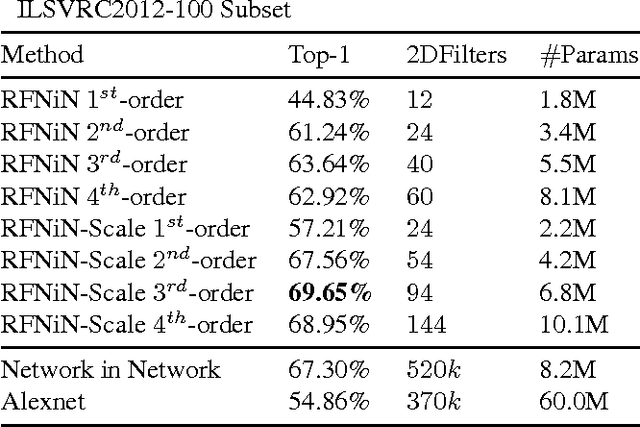Structured Receptive Fields in CNNs
Paper and Code
May 13, 2016



Learning powerful feature representations with CNNs is hard when training data are limited. Pre-training is one way to overcome this, but it requires large datasets sufficiently similar to the target domain. Another option is to design priors into the model, which can range from tuned hyperparameters to fully engineered representations like Scattering Networks. We combine these ideas into structured receptive field networks, a model which has a fixed filter basis and yet retains the flexibility of CNNs. This flexibility is achieved by expressing receptive fields in CNNs as a weighted sum over a fixed basis which is similar in spirit to Scattering Networks. The key difference is that we learn arbitrary effective filter sets from the basis rather than modeling the filters. This approach explicitly connects classical multiscale image analysis with general CNNs. With structured receptive field networks, we improve considerably over unstructured CNNs for small and medium dataset scenarios as well as over Scattering for large datasets. We validate our findings on ILSVRC2012, Cifar-10, Cifar-100 and MNIST. As a realistic small dataset example, we show state-of-the-art classification results on popular 3D MRI brain-disease datasets where pre-training is difficult due to a lack of large public datasets in a similar domain.
 Add to Chrome
Add to Chrome Add to Firefox
Add to Firefox Add to Edge
Add to Edge